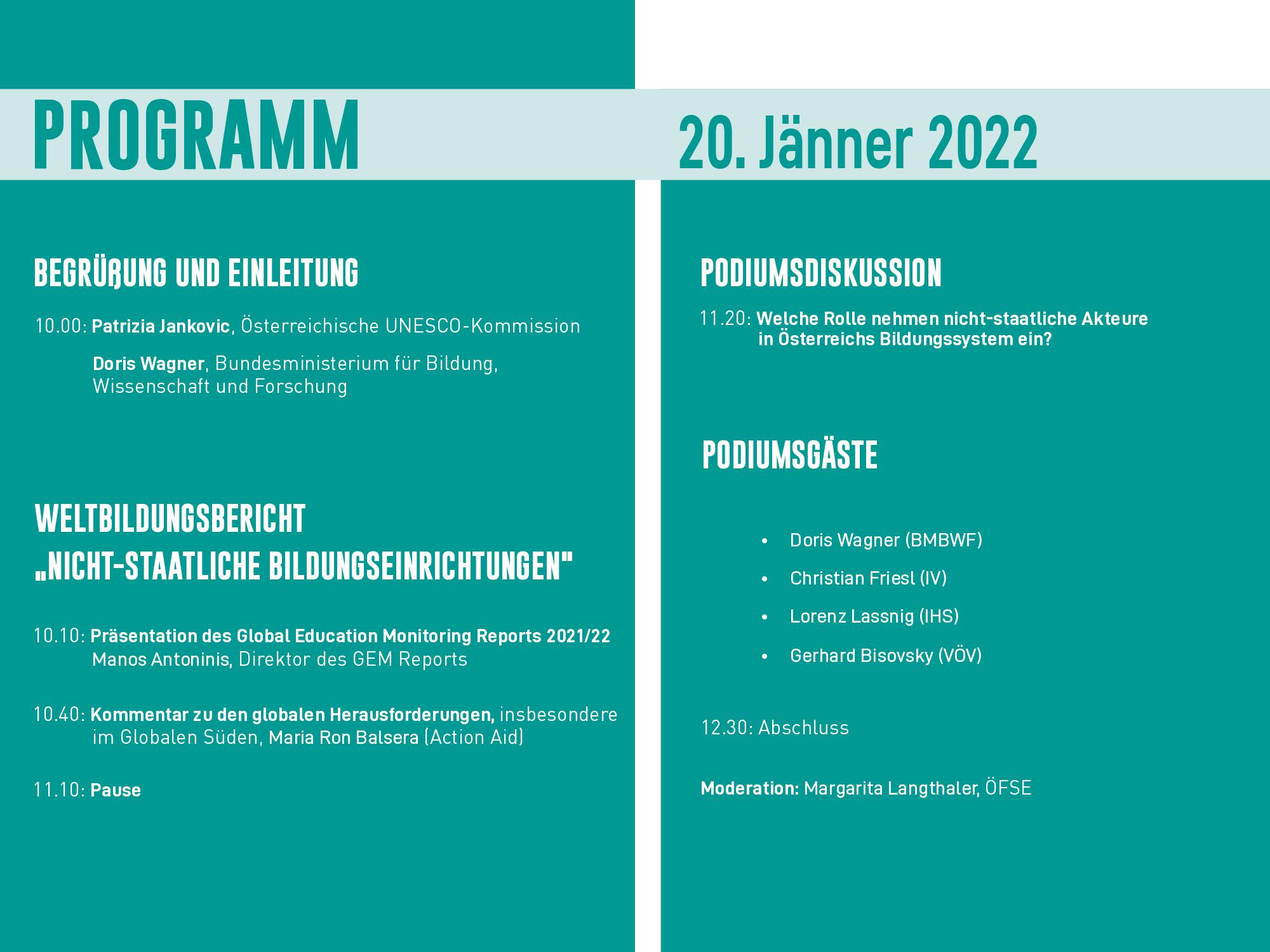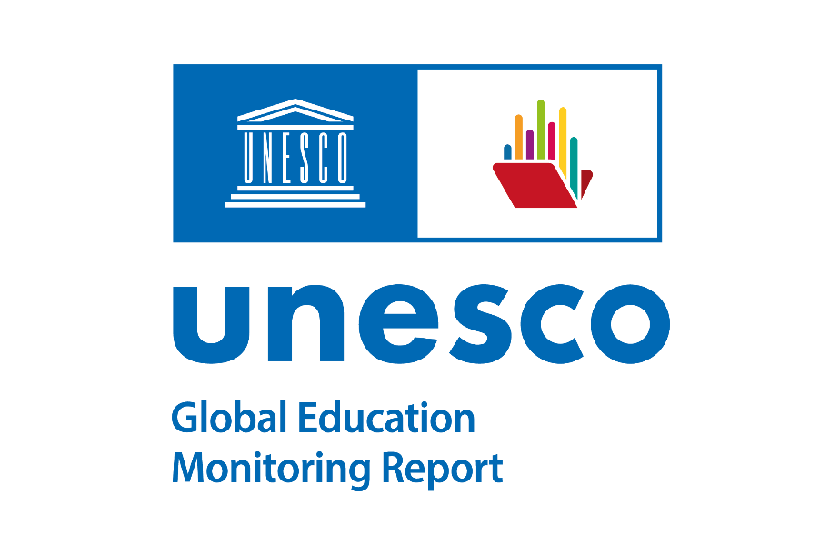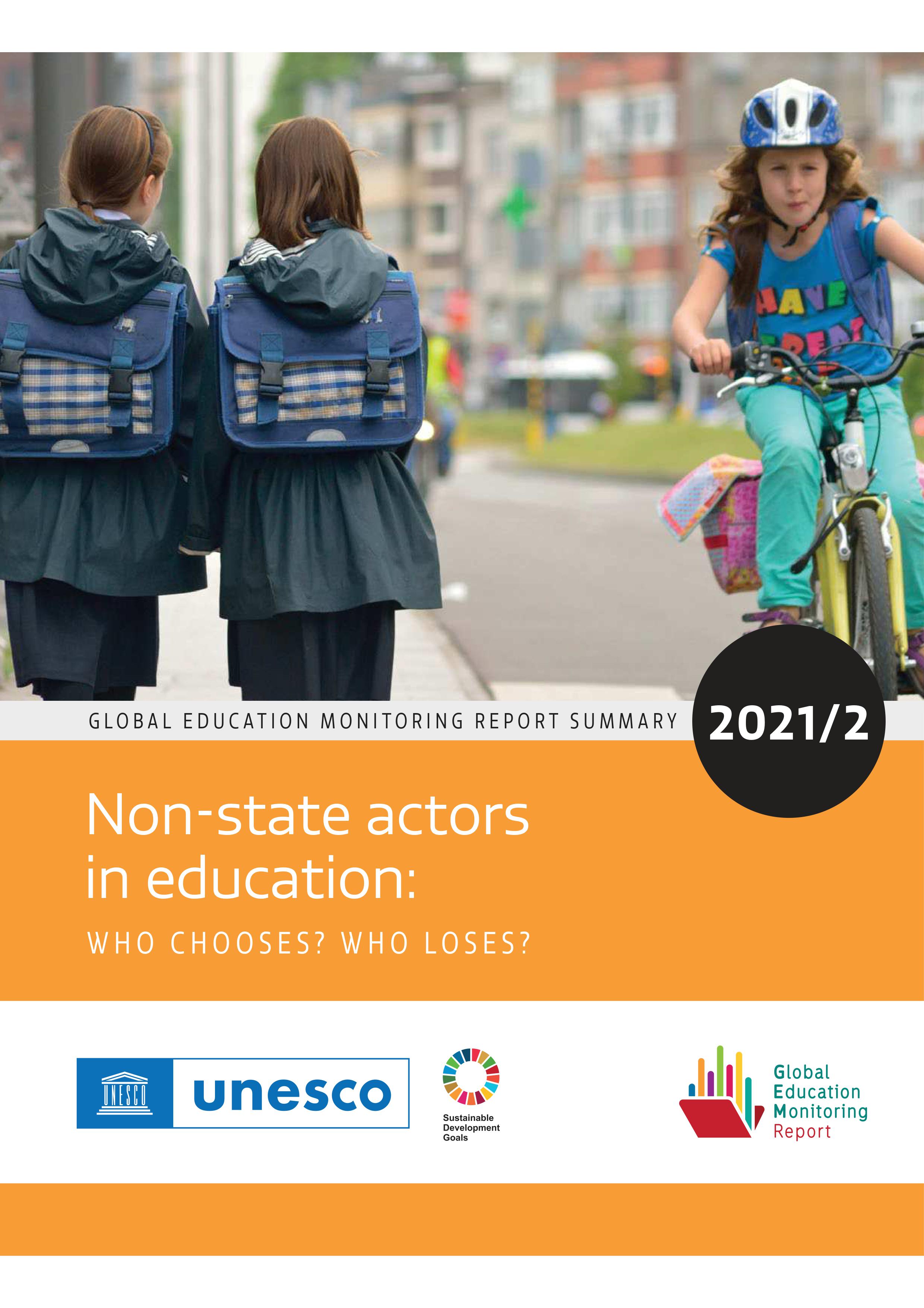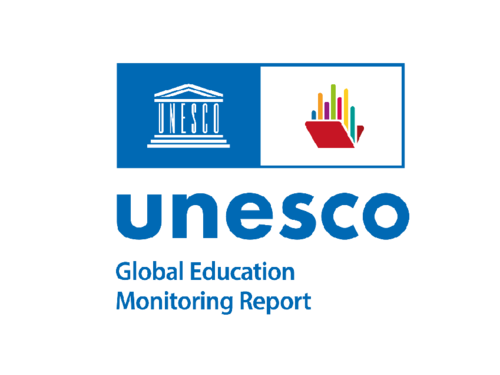Global Education Monitoring Report: Non-State Actors in Education: Who chooses? Who loses? UNESCO calls for better oversight of private education institutions to reduce inequalities.
The UNESCO Global Education Monitoring Report (GEM Report) warns of growing inequality and exclusion due to private educational institutions’ high costs and weak government regulation. It advocates five measures to ensure the provision of quality education for all.
Today, 40% of elementary school pupils, 20% of primary school pupils, and 30% of secondary pupils and university students are taught or educated in non-state schools across the globe. However, UNESCO's latest GEM Report shows that many countries lack adequate standards for private institutions or the capacity to enforce them, undermining quality and potentially widening the gap between the rich and the poor in education.
The report analyses non-state actors in all education systems, from schools run by religious organisations, non-governmental organisations, philanthropic organisations, and for-profit companies, to all those involved in the provision of education services. Many countries allow these schools, most of which are unregistered, to operate without any oversight.
Who chooses? Who loses?
The study shows that only 27% of countries explicitly prohibit profit-making in primary and secondary schools, which runs counter to the vision of 12 years of free education for all. More than half of the countries have no admissions procedures for pupils and only 7% have quotas to help disadvantaged pupils access schools through initiatives. In addition, only half of the countries have implemented provisions for private education.
Consequently, the report, titled "Who chooses? Who loses?", shows that households in the least developed countries spend a disproportionate share of their income on their children's education. In low and middle-income countries, 39% of households’ income is spent on education, which includes school uniforms and school supplies, compared to only 16% in high-income countries. As a result, 8% of families in low and middle-income countries must borrow to pay for their children to attend school.
“Minimum standards have to be set by governments across state and non-state schools to make sure that the most disadvantaged students have equal opportunities to benefit from quality education”, says Audrey Azoulay, Director General of UNESCO. She emphasises: “Equitable financing mechanisms are urgently needed. Those living in more disadvantaged contexts shouldn’t be penalized.”
Five recommendations for providing quality education for all
UNESCO calls on countries to review their existing arrangements and recommends:
- Increasing efforts to guarantee free, publicly funded access to a year of pre-school education as well as 12 years of primary and secondary education for all children and young people.
- Establishing quality standards that apply to all state and non-state education institutions, as parallel systems with different expectations, resources, and working conditions have a negative effect on building a coherent education system for all learners.
- Strengthening government capacity to monitor and enforce regulations.
- Encouraging innovation for the common good and bringing together all actors involved in its development. Governments should work in partnership with all actors to learn, compile, and evaluate good practices, provide resources enabling practitioners to exchange experiences, and pilot and scale up good ideas.
- Protecting education from narrow vested interests. Maintaining the transparency and integrity of public education helps safeguard the most disadvantaged learners.
National Presentation of the Global Education Monitoring Report
On 20th of January 2022 the UNESCO Global Education Monitoring Report "Non-state actors in education: Who chooses? Who loses?" was presented in Austria in cooperation with the Austrian Foundation for Development Research.




![[Translate to EN:] [Translate to EN:]](/fileadmin/_processed_/9/6/csm_education_2030_logo-page-001_7a6aecad7b.jpg)




![[Translate to EN:] Publikationen zu Bildung 2030](/fileadmin/_processed_/8/a/csm_Publikationen3_af52a7496d.jpg)